#Project Management Professional
Text
PESTLE, TECOP and VUCA
In the fast-paced and unpredictable world of business, staying ahead requires a keen understanding of the forces that shape our environment. As organizations strive to make informed decisions and minimize risks, three essential frameworks come to the forefront—PESTLE, TECOP, and VUCA
Let’s delve into the intricacies of PESTLE’s political, economic, social, technological, legal, and environmental…
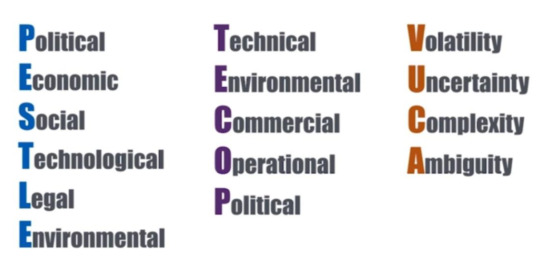
View On WordPress
#Online Training#PMI#PMP#PMP Certification#PMP Exam#Project Management#Project Management Professional#Project Managers#Project Risk Management
5 notes
·
View notes
Text
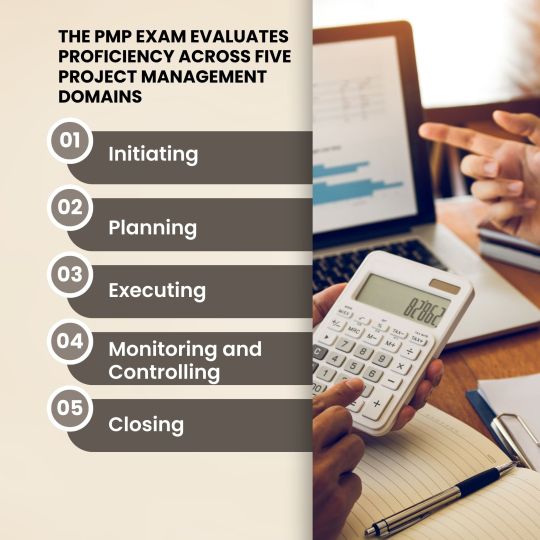
Unlock your potential with PMP Certification! 🌟 Elevate your career in project management and open doors to new opportunities. Gain global recognition, enhance your skills, and boost your earning potential. Start your journey to success today! #PMP #ProjectManagement #CareerAdvancement #ProfessionalDevelopment
0 notes
Text

#PMP certification#pmp#project management professional#pmp course#pmi certification#pmp exam#pmp training#pmp is#pmi pmp#project management professional certification#distance learning#distance courses#distance learning mba#distance mba#distance education#mitsde#pgdm#pgdm course#pgdm colleges#distancelearning
0 notes
Text
Unlocking Potential through PGMP Certification: An In-Depth Look into Program Management Superstardom
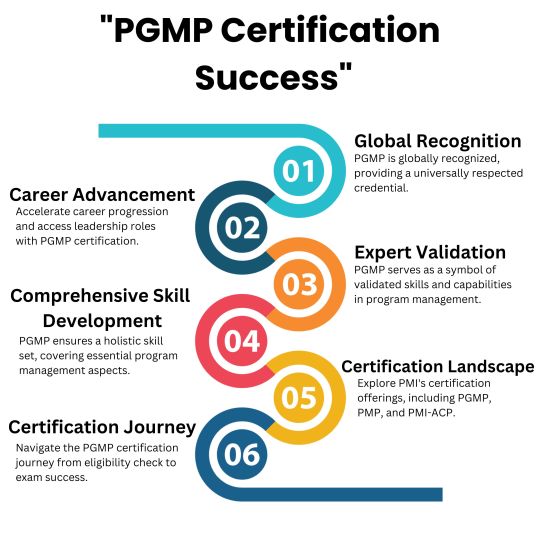
First of all,
Achieving excellence in program management is a goal that many professionals share in the fast-paced field of project management. A vital path to showcasing expertise and making a name for yourself in this cutthroat industry is the Program Management Professional (PgMP) credential. We will discuss the importance of PGMP certification in this blog, as well as the path to obtaining this prestigious certification and the larger field of program management certification.
Comprehending PGMP Certification: The Project Management Institute (PMI) offers the Program Management Professional (PgMP) certification, which is a top honor for seasoned program managers. This credential recognizes people with the expertise, experience, and know-how needed to manage and execute complex programs successfully.
Principal Advantages of PGMP Certification:
Expert Validation: A program manager's ability to successfully lead and oversee complex initiatives is validated by their PGMP certification, which acts as a badge of expertise.
Global Recognition: The PGMP accreditation is highly respected worldwide, which boosts one's professional credibility and provides access to both domestic and foreign prospects.
Professional Growth: Acquiring the PGMP certification has the potential to stimulate professional growth. Certified program managers are in high demand as leaders in their companies because employers respect the abilities and proficiencies that come with the certification.
Holistic Skill Development: The certification procedure guarantees a thorough comprehension of program management concepts, encompassing topics like governance, benefits management, stakeholder involvement, and strategy alignment.
Program Management Certification Landscape: Although the PGMP certification is unique, it's important to take into account the larger field of qualifications for program managers. PMI provides a range of certificates suited to varying goals and career stages. Project managers and agile practitioners are served by the Program Management Professional (PgMP) and PMI Agile Certified Practitioner (PMI-ACP) certificates, which are complementary to the Program Management Professional (PgMP) qualification.
Choosing the Correct Certification Path: Depending on experience, career objectives, and the demands of the position, the right certification should be chosen. Before moving on to the more specialized PGMP certification, prospective program managers might start with the PMP certification to build a strong foundation in project management.
The Path to PGMP Certification:
Eligibility Assessment: Potential applicants should confirm that they fulfill the prerequisites, which include four years of program management experience and a minimum of four years of project management experience.
Application Process: The first step is to submit a thorough application that includes information about your schooling, work experience, and project contributions. PMI checks the application to ensure that it is eligible.
Exam Preparation: Success in an exam requires a thorough preparation. To become familiar with the subject matter and structure of the PGMP test, make use of PMI's official tools, study guides, and practice exams.
Exam Day: The multiple-choice questions on the PGMP exam are meant to gauge a candidate's aptitude for using their knowledge of program management in practical situations.

In conclusion, earning PGMP certification is a wise step toward career advancement given the growing need for qualified program managers. Professionals can open new doors and confidently and expertly contribute to the success of complicated programs by navigating the certification route and being aware of the broader landscape of program management credentials. Get certified as a PGMP and start on the road to program management excellence right now.
0 notes
Text

#PMP certification#pmp#project management professional#pmp course#pmi certification#pmp exam#pmp training#pmp is#pmi pmp#mit skills india#skills#upskilling#mit skills#upskill#mitskills#career upskilling
0 notes
Text
Achieving Operational Zenith: The Synergistic Symphony of Six Sigma and Lean Principles
Introduction: The Harmonious Dance of Six Sigma and Lean
Six Sigma and Lean have emerged as champions in the ever-changing world of organizational efficiency. Each provides significant benefits on their own, but when combined, they form a harmonious symphony of operational excellence. In this blog, we will investigate the dynamic interplay between Six Sigma and Lean concepts, revealing the revolutionary force that emerges when two approaches come together in a seamless manner.
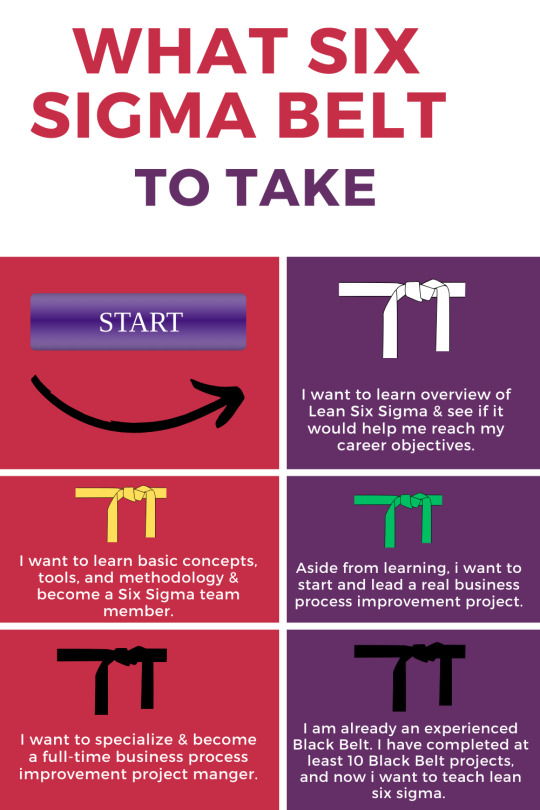
Section 1: The Dual Forces of Six Sigma
1.1 Embarking on the Six Sigma Journey
Six Sigma, a quality-driven technique, goes on a journey summarized in the DMAIC process (Define, Measure, Analyze, Improve, and Control). These painstakingly planned stages provide enterprises with a defined path for eliminating flaws and increasing operational efficiency.
1.2 The DMAIC Symphony: A Precision Movement
With specified goals, data-driven measurement, rigorous analysis, continuous improvement, and a control climax to ensure ongoing excellence, each aspect of the DMAIC process contributes to the symphony. Organizations that use this methodology foster a culture of data-driven decision-making and continual improvement.
Section 2: The Lean Ballet
2.1 Lean Principles: A Ballet of Efficiency
Lean concepts, derived from the Toyota Production System, give operational processes a balletic beauty. Lean, which is based on waste removal and value maximization, promotes continual development and a deep respect for people. The stage is set for operations that are efficient, agile, and focused on the client.
2.2 Lean Choreography: Streamlining Performance
From waste reduction to the disciplined dance of 5S, lean concepts choreograph a simplified performance. This dance transforms firms into agile entities capable of precisely responding to client needs and delivering value with grace.
Section 3: The Symbiotic Dance of Lean Six Sigma
3.1 A Dance of Synergy: Integration for Excellence
A synergistic dance occurs when Lean principles are combined with the organized processes of Six Sigma. Six Sigma's analytical strength is supplemented by Lean's emphasis on efficiency and waste reduction. They work together to generate a revolutionary rhythm that is in sync with operational excellence.
3.2 In Action Harmony: Real-World Crescendos
Examine real-world examples of how firms have successfully combined Lean Six Sigma. Observe the cascade of enhanced procedures, increased customer happiness, and measurable bottom-line results. The combination of these techniques creates a potent tool for transformation.
Section 4: Case Studies and Success Stories
4.1 Industry Maestros: A Showcase of Success
Examine case examples from a variety of industries, each demonstrating a distinct symphony of success gained through the integration of Lean Six Sigma. These stories offer glimpses into the transforming path, from hurdles to glorious outcomes.
4.2 Conducting Success: Maestros' Advice
Take away useful insights from these success tales. Navigate common organizational obstacles and find unique solutions that led them to a harmonious combination of operational excellence.
Section 5: Implementation Strategies
5.1 Taking the First Step: Organizational Best Practices
Provide actionable advice to firms thinking about implementing Lean Six Sigma. Discuss ways for overcoming opposition to change and explain critical first steps to establishing a harmonic operational dance.
5.2 Dance Training and Mastery
Emphasize the importance of staff and leadership training. Examine approved certificates for professionals seeking to become masters of the Lean Six Sigma dance.
Conclusion: A Crescendo of Excellence
Finally, the convergence of Six Sigma and Lean concepts results in a crescendo of operational excellence. The harmonious dance of efficiency, quality, and continuous improvement transforms organizations into success orchestras, with each methodology playing a critical role in reaching operational apex.
#Professional Development Units (PDUs)#Continuing Certification Requirements System (CCRS)#PMP Certification Renewal Process#PMI (Project Management Institute)#Project Management Professional#PMP Renewal Requirements#PDU Categories#PMP Certification Maintenance#Renewing PMP Credential
0 notes
Text
How to Get a Project Management Professional (PMP) Certification

Project management is a crucial discipline in the business world, ensuring that projects are completed on time, within budget, and with the desired quality. To excel in this field, many professionals seek the Project Management Professional (PMP) certification, a globally recognized credential. Obtaining a PMP certification can significantly enhance your career prospects and validate your expertise in project management. This article will guide you through the steps to get a PMP certification.
1. Eligibility Requirements
Before embarking on your PMP certification journey, you must meet specific eligibility requirements:
- A secondary degree (high school diploma or equivalent) with at least five years of project management experience, during which you've accumulated 7,500 hours leading and directing projects.
OR
- A four-year degree (bachelor's or global equivalent) with at least three years of project management experience, during which you've accumulated 4,500 hours leading and directing projects.
In addition to the experience requirements, you must also complete 35 hours of project management education.
2. Study the PMBOK Guide
The Project Management Body of Knowledge (PMBOK) Guide is a critical resource for the PMP exam. It is advisable to thoroughly study this guide, as it is the primary reference for the exam questions. Consider using additional study materials or courses to complement your understanding of the PMBOK Guide.
3. Register for the PMP Exam
To register for the PMP exam, visit the official Project Management Institute (PMI) website. Create an account, fill out the application, and submit the necessary documentation, including your project management education and experience. Once your application is approved, you will receive an authorization to schedule (ATS) email, allowing you to choose a test date and location.
4. Prepare for the Exam
Preparation for the PMP exam is crucial. You can use various resources such as PMP preparation books, online courses, practice exams, and study groups to help you gain a comprehensive understanding of project management concepts. Dedicate ample time to study and take practice tests to gauge your knowledge and readiness for the actual exam.
5. Take the PMP Exam
The PMP exam consists of 200 multiple-choice questions and is computer-based. You have four hours to complete it. The exam is designed to assess your knowledge and application of project management principles as outlined in the PMBOK Guide. Be sure to read and understand each question carefully and manage your time effectively.
6. Maintain Your Certification
Once you pass the PMP exam, you become a certified Project Management Professional. However, the journey does not end there. To maintain your PMP certification, you must earn 60 Professional Development Units (PDUs) every three years and adhere to PMI's Code of Ethics and Professional Conduct.
PDUs can be earned through various activities, such as attending courses, webinars, or conferences related to project management. Staying engaged in professional development ensures that you stay up to date with the latest trends and best practices in the field.
Conclusion
Earning a Project Management Professional (PMP) certification is a significant achievement that can boost your career in the project management field. It demonstrates your dedication, expertise, and commitment to delivering successful projects. To attain this certification, meet the eligibility requirements, study the PMBOK Guide, register for the exam, prepare diligently, and pass the PMP exam. Once certified, maintain your PMP status by earning Professional Development Units and upholding PMI's ethical standards. This comprehensive guide provides a roadmap to achieving your PMP certification and unlocking new opportunities in your project management career.
0 notes
Text
PMP Certification Training Course - StarAgile
PMP or Project Management Professional, is a highly-regarded certification for project managers around the world. Obtaining your PMP certification can give you a competitive edge in the job market. With a PMP certification, you'll have the knowledge and skills to lead and direct projects, manage resources and budgets, and effectively communicate with stakeholders. StarAgile is one of the best PMP Certification training Institute with 300K+ professionals trained by our expert trainers who have decades of experience with a 100% success ratio. We make sure that each and every student of ours clears the PMP certification exam on their 1st attempt.
Do call us at +91 6300765842 or visit our website for more details.
0 notes
Text
What is Business Value
Business Value is creating and delivering benefits that exceed the costs involved.
Definitions
Business value is the combination of tangible and intangible assets, capabilities, and relationships that a company possesses and leverages to create and capture value for its stakeholders.
Through the effective use of portfolio, program, and project management, organizations will possess the ability…

View On WordPress
#Online Training#PMI#PMP#PMP Certification#PMP Exam#Project Management#Project Management Professional
3 notes
·
View notes
Text
Elevate Your Career with PMP
Certification
Are you aiming to elevate your career in project management? The globally esteemed PMP certification might just be the key to unlocking your path to success. In today's fiercely competitive job market, possessing a PMP certification not only boosts your professional credibility but also broadens the spectrum of career advancement opportunities.
Understanding PMP Certification
PMP, short for Project Management Professional, is a prestigious credential conferred by the Project Management Institute (PMI) upon individuals meeting specific education and experience prerequisites in project management. It signifies a remarkable level of proficiency and competence in orchestrating and guiding projects to fruition.
Reasons to Pursue PMP Certification
Augmented Skill Set: PMP certification equips you with the knowledge and competencies necessary to proficiently manage projects of diverse complexities.
Global Validation: Recognized worldwide, PMP certification affirms your mastery of project management methodologies and best practices.
Career Growth: With PMP certification, you distinguish yourself among peers, heightening your prospects for securing rewarding job opportunities and advancements.
Enhanced Salary Prospects: Certified PMP professionals often enjoy higher remunerations compared to their non-certified counterparts.
Networking Potential: Engaging with the PMP community presents excellent networking avenues with professionals and experts sharing similar interests.
PMP Certification Requirements
Eligibility for the PMP exam necessitates fulfilling specific criteria:
Possession of a four-year degree (Bachelor’s or equivalent)
Accumulation of 36 months of project leadership experience
Completion of 35 hours of project management education/training
Alternatively:
Possession of a high school diploma or equivalent
Accumulation of 60 months of project leadership experience
Completion of 35 hours of project management education/training
Overview of the PMP Exam
The PMP exam evaluates proficiency across five project management domains:
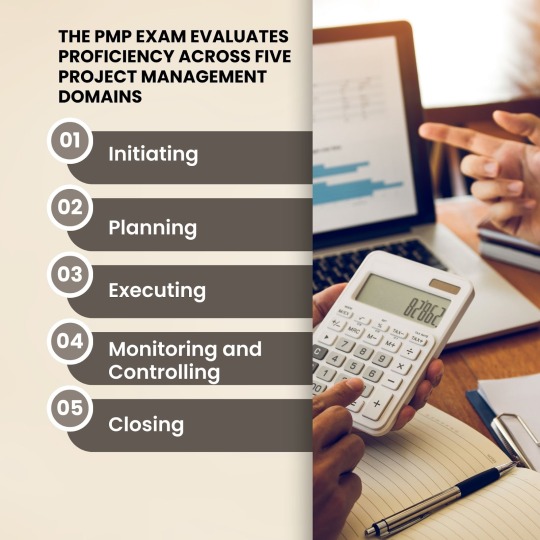
Preparing for PMP Certification
Set yourself up for success with comprehensive PMP courses and training programs designed to prepare you thoroughly for the exam. Key features of these programs include:
Detailed Curriculum: Covering all knowledge areas and processes outlined in the PMBOK (Project Management Body of Knowledge) Guide.
Practice Tests: Replicate exam conditions with practice tests and quizzes to assess your readiness effectively.
Seasoned Instructors: Learn from experienced instructors who offer invaluable insights and exam strategies.
Interactive Learning: Participate in interactive sessions, case studies, and group discussions to deepen your comprehension.
Conclusion
Achieving PMP certification marks a significant milestone in your journey within project management. Beyond validating your expertise, it paves the way for fresh opportunities and professional growth. Invest in your career development today by embarking on the path to PMP certification, and unlock boundless possibilities in the realm of project management.
Ready to take the leap toward becoming a certified PMP professional? Explore our array of PMP certification courses and commence your journey toward success today!
0 notes
Text

#PMP certification#pmp#project management professional#pmp course#pmi certification#pmp exam#pmp training#distance mba#distance learning mba#distance courses#distance education#distancelearning#mitsde#pgdm colleges#pgdm course#distance learning#pgdm
0 notes
Text
In an evolving business environment, the role of the project management professional (PMP) has become essential. These professionals have the skills and expertise to make your project a success and ensure your project is completed on time, on time, and on budget. So when you are detailed with pressure it project management professional trainer that helps you to find your goals.
1 note
·
View note
Text
Getting Ahead: Revealing the best PMP Certification for Project Management Achievement

Overview
The Project Management Professional (PMP) credential stands out as a beacon of competence in the highly competitive field of project management, where accuracy, leadership, and strategic insight are paramount. Obtaining the best PMP certification becomes crucial for people who want to improve their project management skills. We examine the intricacies of PMP certificates in this thorough analysis, deconstructing the different choices and revealing the route to project management success.
Overview of the PMP Certification
The Project Management Institute (PMI) grants the Project Management Professional (PMP) certification, which is a globally recognized credential that attests to a professional's expertise in the art and science of project management. It is evidence of one's capacity to successfully negotiate the complex terrain of project implementation while abiding by the generally recognized best practices included in the Project Management Body of Knowledge (PMBOK) manual.
Why Get Certified as a PMP?
International Recognition: The best PMP certification is a widely accepted benchmark for excellence in project management. A professional's dedication to upholding the best standards in project management is demonstrated by their PMP certification, which is valid for employment in any industry, including IT, construction, healthcare, and other fields.
job Advancement: Obtaining the best PMP certification can open up new job paths and prospects for individuals. It positions qualified professionals as highly sought-after assets in the labor market and opens doors to leadership jobs, greater compensation ranges, and more responsibilities.
Validation of Skills: A professional's knowledge, abilities, and experience in a variety of project management domains are confirmed by the demanding PMP certification procedure. A comprehensive understanding of project management principles is ensured by the certification, spanning from planning and initiating to executing, monitoring, controlling, and closing.
Network Expansion: Through PMI, holding a PMP credential gives one access to a sizable network of people that have similar interests. PMP certification enhances the career journey of professionals in IT, construction, healthcare, and other industries through networking, knowledge sharing, and sharing of best practices.
The best PMP Certifications: A Comparison Study
PMP Certification from PMI
The following requirements must be met in order to be eligible: a minimum of a high school diploma or its international equivalent, 35 hours of project management education, and at least 4,500 hours of project leadership and direction.
Exam structure: 180 multiple-choice questions spread over four hours. Five domains are included in the questions: planning, initiating, executing, monitoring and controlling, and closing.
Concentration and Methodology: All-encompassing and transferable to many sectors. highlights the PMBOK handbook as the main source of information.
Worldwide Acknowledgment: Known around the world, this accreditation set the benchmark for project management.
Exam fees are discounted for PMI members. The exam fee, study materials, and PMI membership fee are all included in the price.
PRINCE2
PRojects IN Controlled Environments, or PRINCE2, is another well-known project management qualification. PRINCE2, a process-driven methodology that originated in the UK, offers an organized foundation for efficient project management. PRINCE2 is especially well-liked in Europe and the public sector, despite not having the same level of international recognition as the PMP certification.
Professionals seeking a thorough understanding of project management approaches with an emphasis on defined roles and responsibilities and structured processes should consider pursuing PRINCE2 certification.
PMI-ACP, or Agile Certified Practitioner
The PMI-ACP credential, often known as the Agile Certified Practitioner, has become more and more popular as companies use agile approaches. This certification, provided by PMI, attests to a professional's familiarity with agile methods and principles. It is intended for individuals who are part of agile teams ororganizations practicing agile methodologies.
The PMI-ACP certification is beneficial for project managers involved in agile projects or those looking to diversify their skill set to adapt to the evolving landscape of project management.
Certified ScrumMaster (CSM)
Specifically tailored for professionals involved in Scrum projects, the Certified ScrumMaster (CSM) certification focuses on the Scrum framework—a widely adopted agile methodology. Offered by the Scrum Alliance, this certification is ideal for those leading or participating in Scrum teams.
The CSM certification is valuable for project managers in industries where Scrum is a prevalent project management approach, such as software development.
Comparative Analysis
Now, let's delve into a comparative analysis of these certifications based on various parameters:
Eligibility Criteria
PMI's PMP: Requires a minimum of a high school diploma or global equivalent, coupled with 35 hours of project management education and at least 4,500 hours of leading and directing projects, plus 35 hours of project management education.
PRINCE2: No formal prerequisites, making it accessible to a broader audience. However, having prior project management experience is beneficial.
PMI-ACP: Requires a secondary degree, 21 contact hours of training in agile practices, and 12 months of general project management experience within the last five years.
CSM: No formal prerequisites. However, attending a two-day CSM course and passing the CSM exam are necessary to obtain certification.
Global Recognition
PMI's PMP: Globally recognized and respected across industries. Widely considered the gold standard in project management certification.
PRINCE2: Particularly recognized in Europe and the public sector. Growing in popularity globally, especially in project environments that value a structured approach.
PMI-ACP: Increasingly recognized globally as organizations adopt agile methodologies. Particularly relevant in industries where agility is crucial.
CSM: Well-recognized in industries that heavily utilize Scrum for project management, such as software development.
Cost
PMI's PMP: PMI members pay a reduced exam fee compared to non-members. The cost includes the exam fee, PMI membership fee, and study materials.
PRINCE2: Costs vary depending on the training provider and location. Typically, the cost includes training fees, exam fees, and study materials.
PMI-ACP: PMI members receive a discount on exam fees. The cost includes the exam fee, PMI membership fee, and study materials.
CSM: Costs include the course fee, which varies depending on the training provider. The fee covers training, materials, and certification.
Conclusion
In the ever-evolving landscape of project management, selecting the best PMP certification requires careful consideration of individual career goals, industry trends, and personal preferences. PMI's PMP certification remains the pinnacle of project management credentials, offering a broad and globally recognized framework for professionals across industries.
For those seeking a structured approach with a focus on clear processes and roles, PRINCE2 provides a viable alternative, particularly in European and public sector contexts. Agile enthusiasts may find value in certifications like PMI-ACP, which validates knowledge of agile principles, or CSM, which hones in on the Scrum framework.
Ultimately, the best PMP certification is the one that aligns with individual career aspirations and the specific demands of the industry in which a project manager operates. With the right certification, professionals can elevate their skills, open new career pathways, and contribute to the successful delivery of projects in an ever-changing business landscape.
1 note
·
View note
Text
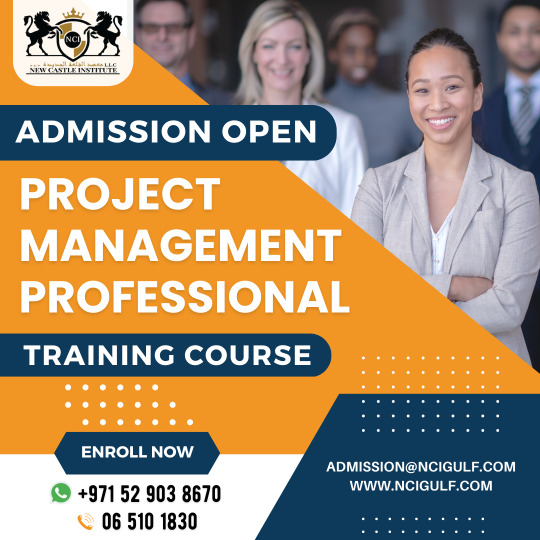
#newcastle institute sharjah#newcastleinstituteuae#newcastleinstitute#ncisharjah#ncigulfsharjah#pmp courses#project management professional#pmp course#pmp course sharjah#nciuae
1 note
·
View note
Text
Mastering Project Management: Unleashing the Power of MIT Skills’ Project Management Professional (PMP) Online
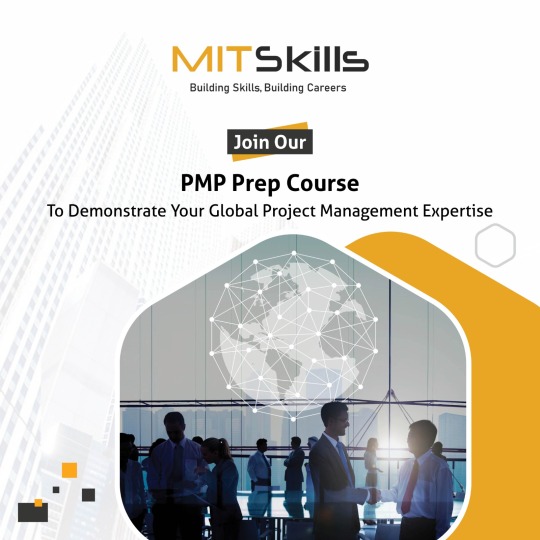
Proficiency in project management is crucial in the ever-changing professional scene of today. Organizations depend more and more on competent project managers to guarantee the successful completion of their efforts as markets change and competition heats up. Modern Project Management Professional (PMP) Online training is provided by MIT Skills, an organization that understands the value of providing professionals with the skills they need. We dive into the world of MIT Skills’ PMP Online program in this blog post, examining why it is the greatest option for people looking to improve their project management skills.
A thorough and industry-aligned PMP Online course is offered by MIT Skills, a prestigious university recognized for its dedication to quality education. One of MIT Skills’ unique selling points is its commitment to offering a comprehensive educational experience that integrates theory and real-world application. With flexibility without sacrificing the depth of content, the Best Project Management Professional (PMP) Online Course is created to meet the needs of working professionals.
Key Features of MIT Skills’ Project Management Professional (PMP) Online:
Expert-Led Curriculum: Experienced project managers and industry experts created the PMP Online course at MIT Skills. The curriculum is developed to ensure that participants are ready to take on the difficulties of modern project management by covering the newest trends, best practices, and real-world scenarios.
Interactive Learning Environment: An engaging and dynamic environment is promoted via the MIT Skills online learning platform. Through the use of virtual labs, discussion boards, and multimedia tools, participants can learn collaboratively and improve their comprehension of project management principles.
Flexible Schedule: The PMP Online course from MIT Skills provides a flexible schedule in recognition of the time constraints that professionals confront. Due to the flexibility of the course materials, participants can easily juggle their obligations to their jobs and their studies.
Real-world Case Studies: The PMP Online course from MIT Skills is known for including real-world case studies. This method closes the knowledge gap between theory and practice by giving participants real-world insights into the application of project management concepts.
Mentorship and Support: MIT Skills is dedicated to helping its members succeed. Individuals will receive advice throughout their learning journey thanks to the mentorship and support services included in the PMP Online course. MIT Skills is unique in that it takes a customized approach and builds an ecosystem that fosters skill development.
Benefits of PMP Certification: Obtaining a PMP certification via the online curriculum at MIT Skills leads to a host of advantages. Project management specialists with PMP certification are highly sought after worldwide since the certification is acknowledged as a mark of distinction in the field. The benefits include the chance to grow in one’s profession, more earning potential, and the capacity to successfully support organizational achievement.
Professionals hoping to succeed in project management will find guidance and inspiration in MIT Skills’ Best Project Management Professional (PMP) course. People may study the art and science of project management with MIT Skills thanks to its expert-led curriculum, engaging learning environment, flexible schedule, real-world case studies, and committed support. You’re making a calculated decision to advance toward a lucrative and satisfying profession in project management by signing up for the PMP Online course at MIT Skills.
Visit: https://mitskillsindia.edu.in/PMP-certification
Call: 9028–2588–00 / 9112–2072–07
#PMP certification#pmp#project management professional#pmp course#pmi certification#pmp exam#pmp training#pmp is#pmi pmp#project management professional certification#pmp certification course#pmp certification training#pmp project management#pmi pmp certification#mit skills india#skills#mit skills#upskilling#upskill#mitskills#career upskilling
0 notes